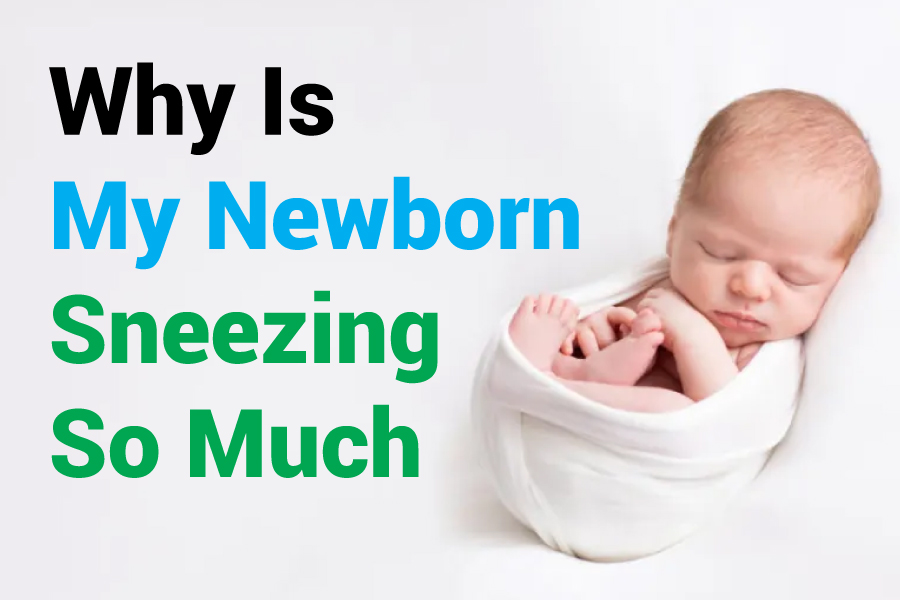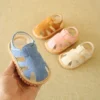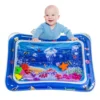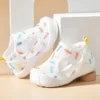Newborns are fragile and every little sound or twitch makes new parents very concerned. One such small issue that creates panic is excessive sneezing. If you always have the question, “Why is my newborn sneezing so much?”, then you are surely not the only one. It can be a little worrying to hear your baby sneeze in those early weeks after birth, but truth be told, it happens constantly and for the most part, is normal. This article discusses some of the many reasons why newborns sneeze and will go a long way in providing reassurance and guidance to the new parent. When you understand what provokes the sneezing, you are put in a better position to take care of your baby and know when it is time to consult your healthcare provider.
Why Is My Newborn Sneezing Too Much?
Excessive sneezing in babies, in most cases, is a normal process. The reasons for this can include the small size of their nasal passages, which react to dust, smoke, and other irritants. Newborns do sneeze to clear their nasal pathways of amniotic fluid and mucus. But if it is followed by other symptoms like fever or complaining breaths, then one should show him to a pediatrician.
Newborn Sneezing Explained
Newborns have small nasal passages and are easily irritated, so they sneeze in response to all sorts of things in the surrounding environment, from dust and pet dander to strong odors. Their immune forces are not fully formed, and they have hypersensitivity to allergens and other irritants. The environment should be clean, without all possible sources of irritation. Moreover, babies sneeze to get rid of amniotic fluid and mucus from their noses, which is a part of the normal adaptation of life outside the womb.
Sneezing can also be a temperature reflex. If a baby has been moved from a warm area into a cooler one, the sudden change of temperature will stress the nasal cavity and induce sneezing. This reflex opens up airways that can protect them. It is not harmful, and parents need only keep their infant at comfortable temperatures.
Sometimes frequent sneezing can be a sign of more serious issues, such as infection or possibly an underlying health problem. When your baby sneezes with fever, coughing, or other breathing complications, it is always best to see a doctor for good advice. It is only a health professional who can give a proper check-up and, consequently, find out whether there is any problem that requires treatment; otherwise, he will do so and treat the problem.
Another very common cause of sneezing in infants is exposure to secondhand smoke. It greatly irritates the tender lining inside a baby’s nose, and this could result in sneezing, along with many other respiratory problems. It is very important to keep your baby away from smoke and also ensure that the environment in which he or she lives is smoke-free. This will help in minimizing the frequency of sneezing and thus offer protection to their health in general.
Lastly, some babies could also have allergies to some of these products, such as baby powders, lotions, and detergents. These products can irritate the nasal passageways, leading to sneezing in babies. To reduce this chance, only hypoallergenic and fragrance-free products should be used. Monitor the baby’s reaction after using new products to avoid irritants.
Causes And Solutions
1. Environmental Irritants
Newborns are very sensitive to their environment. Sneezing, which results from nasal irritation due to dust, pet dander, and other tiny particles of that kind, is very common in babies. Cleaning up your house regularly and reducing these potential irritants will go a long way to reducing the sneezing in your baby. Regular vacuuming and dusting, alongside the use of air purifiers, will go a long way to create a more comfortable environment for your baby.
2. Clearing Nasal Passages
Sneezing is one of the natural ways in which newborn infants help clear their nostrils from excess mucus and amniotic fluid. It is a necessary reflex to allow them to breathe easily. If the baby seems to have trouble breathing due to a lot of mucus in the nose, then saline nasal spray or a bulb syringe may be useful for helping to clear things out.
3. Temperature Changes
Sharp fluctuations in temperature will irritate the baby’s nasal passages and cause the baby to sneeze. Preventing your baby from over-bundling and the sudden transition from hot to cold temperature will allow this reflex to be minimal. Keeping the room at a constant temperature is a good idea as well.
4. Infections
Although sneezing is not generally worrisome, it may be associated with an infection. Should your baby be sneezing together with other signs like those of fever or lethargy and is not feeding well, he has to be taken to the doctor. Early diagnosis and management will prevent related complications ensuring a healthy baby.
5. Exposure to Secondhand Smoke
Secondhand smoke does amounts of harm to your newborn, most of which include causing him to sneeze much, hence making your baby have trouble with his system of respiration. It wouldn’t be very safe for the tender respiratory system of your baby to be exposed to smoke. Educate family members and visitors on the importance of not smoking near your baby.
Other Theories For Sneezing In Newborns
Although there are some views to the contrary, frequent sneezing by an infant is generally taken to be fairly harmless. Some doctors even believe that it is a portent of allergy. Allergies in newborns are rare, but they are also not impossible. In cases of a familial history of allergies, parents should certainly be on the watch for the likelihood of allergens in the baby’s surroundings. In what may be many such situations, insights and even precautions may be taken from an allergist.
Another aspect is the role of indoor air quality. Poor air quality, especially in urban areas, may lead to the rise of respiratory problems in newborn babies. A good air purifier and proper ventilation can do much toward improving air quality and reducing sneezing. Air fresheners and cleaning products should also be applied with a lot of caution by parents, as these may contain fumes that turn out to be very irritating to a baby’s sensitive nasal passages.
Lastly, cultural and traditional beliefs can often be linked to teething or even superstition. As much as these are not evidence-based, they show a variation in thinking about sneezing with different cultures. Understanding the perspective will assist a parent in navigating through diverse advice and therefore fusing traditional wisdom with modern medical guidance.
Taking Care Of Your Sneezing Newborn
- Keeping the Environment Clean: Make the room of your newborn free from dust and allergens. Clean the room and reduce irritants present in the air now and then by utilizing hypoallergenic products.
- Temperature Levels: Dress your baby according to the temperature and always maintain middle-range room temperatures. Avoid taking the baby too quickly from cold to warm temperatures so that he will have fewer sneezing tendencies.
- Saline Nasal Drops: Saline drops can assist in clearing your baby’s nasal passages. Do as instructed to make the baby more comfortable and reduce sneezing emanating from congestion.
- When to See a Doctor: If sneezing is accompanied by other symptoms, it’s ideal to see a pediatrician. Early intervention will address the probable infections or any other health condition.
Conclusion
Knowing why the newborn is constantly sneezing helps parents relieve many of their concerns and therefore ensures a more healthful environment. Probably one of the most frequent reasons is that it is an instinctual reaction to the new environment or a natural way for the baby to clean their nostrils. Minimizing the frequency of sneezes can start by keeping a clean and smoke-free home, monitoring the temperature, and using gentle nasal care. If you begin to observe even more worrying symptoms, you are advised to have a consultation with your doctor to be on the safe side, for the well-being of your baby.
Frequently Asked Questions
Why Does My Newborn Sneeze So Much?
Newborn babies sneeze to clear their noses from mucus and amniotic fluid; very often they sneeze because of overly sensitive nasal passages.
Is It Normal For Newborns To Sneeze More Than Once In A Row?
Yes, it’s normal for babies to sneeze a couple of times in a row because of reflexes cleaning Nasal cavities from irritants and mucus.
When Is It A Problem In The Newborn That Sneezes?
An isolated sneeze is nothing to worry about, though if accompanied by an uptick in temperature, any sign of not breathing right, or suddenly seeming stupefied will necessitate a trip to the baby’s pediatrician to rule out infections and other illnesses.
Can Secondhand Smoke Cause My Newborn To Sneeze?
Yes, exposure to secondhand smoke can indeed irritate your newborn’s nasal passages and cause sneezing, among other respiratory problems.
How Can I Minimize Sneezing In My Newborn?
Keep your home clean and dust-free, with no allergens; use hypoallergenic products on your baby, maintain a comfortable temperature, and clear their nose with saline drops.







